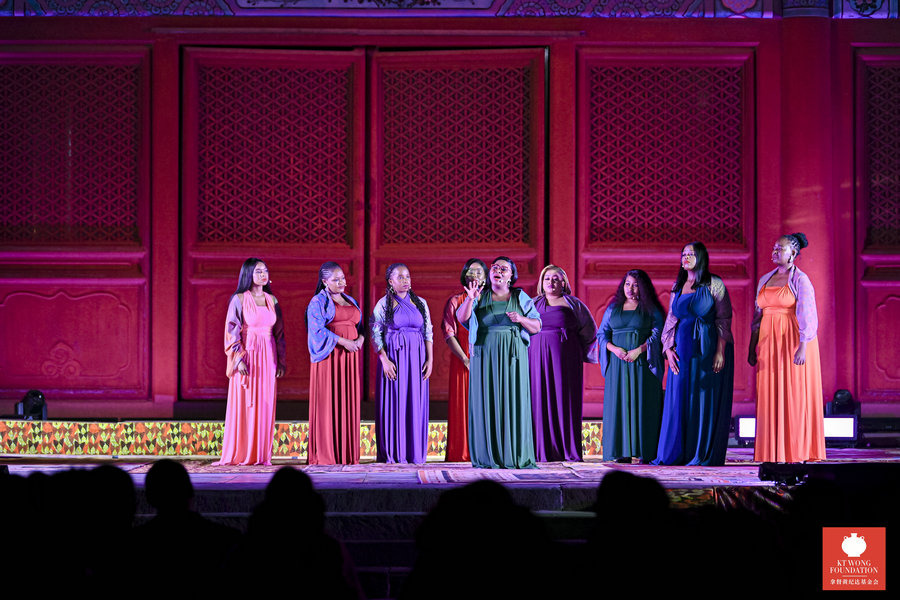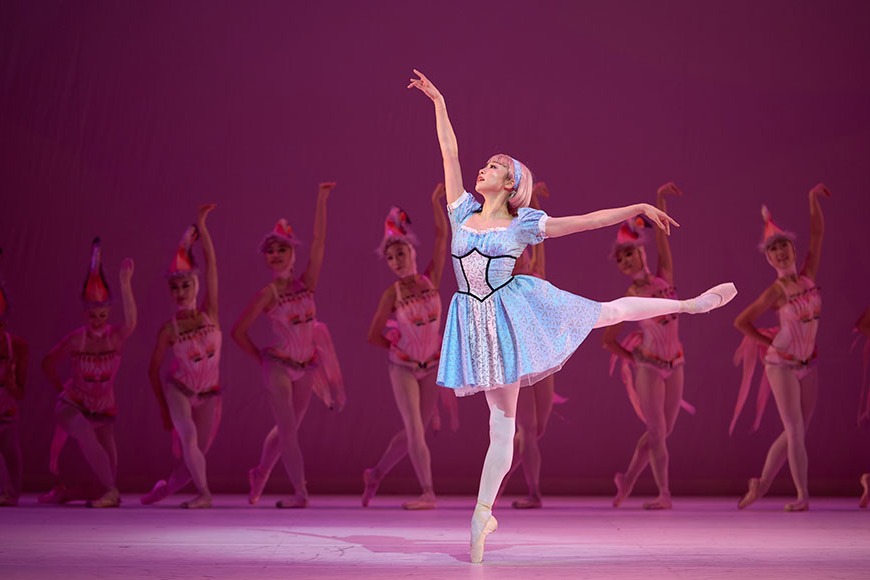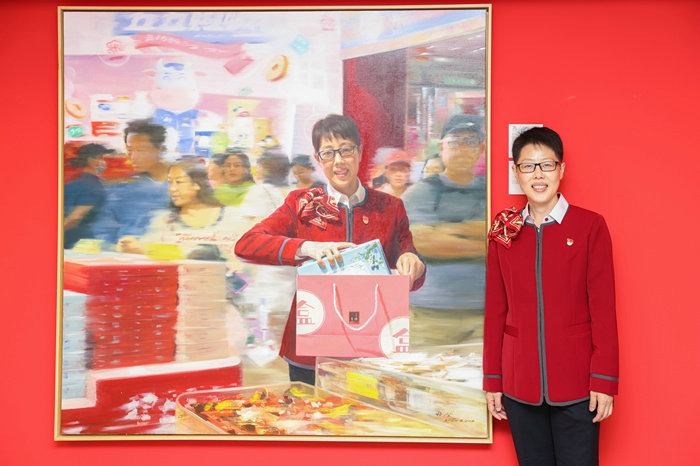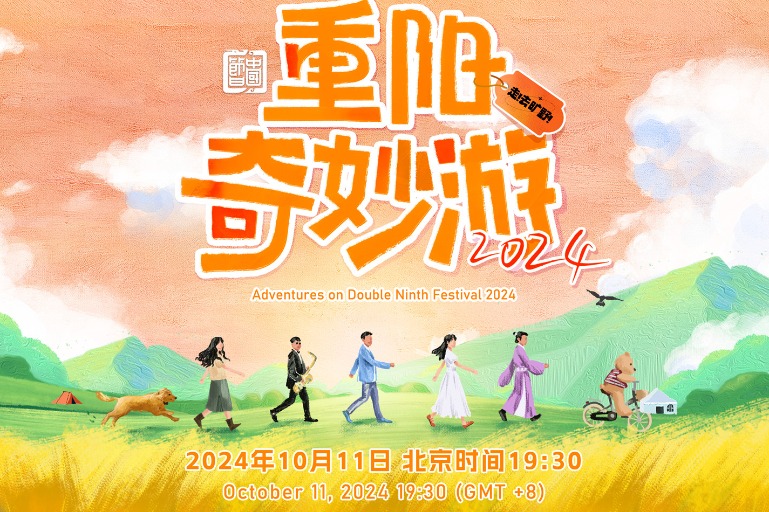Film director Emir Kusturica has long-standing connection to China


When the Yugoslavian film Walter Defends Sarajevo was released across the Chinese mainland in the 1970s, it swiftly became a sensation, captivating millions of Chinese.
Interestingly, the renowned Serbian director Emir Kusturica, one of the few cinematic masters to have won awards at all of Europe's three top events — the Venice Film Festival, the Berlin International Film Festival and the Cannes Film Festival — made his acting debut by portraying a partisan in the movie when he was just 18 years old.
This intriguing backstory was recently brought up during the 14th Beijing International Film Festival, where Kusturica, now 69, served as the jury president for its most prestigious award, the Tiantan Award.
Within 12 days, Kusturica alongside the other six jury members viewed the 15 nominated films, with three produced by Chinese filmmakers.
He said he felt happy to see these interesting Chinese films and found that cinema in China is rapidly moving toward more differentiation and a variety of stories.
Over more than a decade, Kusturica has had a long-standing connection with China. As early as 2012, he led No Smoking Orchestra, his punk band established in Sarajevo in 1980, to perform in Shanghai. Four years later, he was invited to take on the role of jury president at the 2016 Shanghai International Film Festival, and one year after that he attended the Beijing festival as a celebrated guest for the first time.
Born in Sarajevo in 1954, Kusturica showed his talent at an early age with his directorial debut, Do You Remember Dolly Bell?, a comedy romance that won a Silver Lion award at the 1981 Venice Film Festival. His second movie, When Father Was Away on Business, won the Palme d'Or at the 1985 Cannes Film Festival and was nominated for the Academy Award for Best Foreign Language Film.
Recalling his teenage years in his hometown of Sarajevo, Kusturica mentioned that he spent most of his time playing on the streets. Despite having a good family, most of the youngsters he played with came from troubled backgrounds, including families with criminals, single-parent households or facing poverty.
With these memories ingrained in his mind, Kusturica reflected on his understanding of survival and street life, and how these elements were intertwined with societal conditions.
"I must say one of the symptoms of this period can be seen on my shoes," the witty director remarked as he bent down to display his untied shoelaces.
He went on to explain that he intentionally kept them untied as a symbol of peace, suggesting that loose shoelaces could have symbolized a gesture of friendship during tumultuous times, indicating a readiness to build connections rather than engage in conflict. Despite the era being in the past, he has maintained this habit to this day.
Drawing inspiration from his personal experiences during a particularly historical period, Kusturica has developed his distinctive style, with most of his works utilizing surreal narrative techniques to present grand themes like nation and ethnicity, and convey deep patriotic sentiments.
Award-winning novelist Yu Hua, who attended the masterclass alongside veteran film producer Huang Jianxin, said he is a fan of Kusturica, revealing that he had traveled to the director's hometown out of a yearning to understand his upbringing and background.
Reflecting on a moment when he stood near a street watching the traffic, Yu thought about Kusturica's biography, which revealed that most of the director's teenage friends ended up on troubled paths during that turbulent era.
"Nevertheless, art and cinema rescued Kusturica, molding him into a great artist who has bestowed the audience with a plethora of beautiful works. This is why we hold art in such high regard," Yu said, smiling.
Yu was also impressed by his initial encounter with Kusturica. The director had taken him to the location that inspired the creation of Underground, a 1995 comedy depicting two black marketeers who produce and sell weapons during World War II.
"Kusturica led me to a ruin-like place with a small door. In that moment, the light beamed downward, enveloping everything in darkness. It struck me how many passersby had overlooked the door, yet only Kusturica was captivated by it, turning it into an outstanding film. It felt as though history had chosen him," the Chinese writer added.
Emphasizing Kusturica's talent for extracting art from life, Yu said he perceives two distinct personas within the director. One soul resembles William Shakespeare, characterized by vivid imagination and openness, while the other mirrors Anton Chekhov, embodying restraint and seriousness.
"Serbia used to be a great country like China in the medieval age," he said, adding that the process of its decline was influenced both externally and internally.
"If you could wish for an artist to be born in a certain period rich with changes, I think I was the one and I was very lucky," said the director.
"Art is very good when you take people to discover the secrets of the past or the secrets they don't see in everyday life. In my life, this was granted by the period known as the end of the century, when things were extremely dramatic. However, I did take it always as romantic as it is," added Kusturica.
Filmmaker Huang, renowned for directing epics such as The Founding of a Republic, said that the incorporation of magical realism in the film Underground left a lasting impact on him.
This approach, a hallmark of Kusturica's works, effectively portrays shifts in history and eras, illustrating how a specific historical period can serve as a legacy influencing a filmmaker's artistic creations, he said.





































